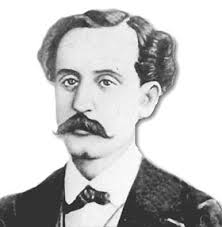
Donato Mármol was a Cuban soldier and patriot of the 19th century (February 14, 1843-November 20, 1870). He was one of the most impetuous and courageous leaders of the Liberation Army, with a seat among the founding fathers of the country, despite his youth.
Reports by historical researchers place his death on June 25 or 26, 1870, in the middle of the redemptive jungle, a victim of smallpox, whose recovery process was complicated by pernicious fevers and finally a concussion, from which he was not able to get out.
The living conditions in an insurgent military camp were extreme, as people went hungry, there was no medical care, the unhealthiness was notorious, they did not have adequate clothing and living conditions, and deadly diseases of the time ravaged the soldiers, such as typhus, gastroenteritis and tuberculosis, of high lethality.
This explains why a strong and young man like General Donato Mármol, accustomed to the exercises and rigors of country life, in his capacity as owner of cattle ranches, was overcome by an illness that used to be an almost common and silent epidemic, despite its great ravages in those times.
At the time of his unexpected death, Major General Mármol was concentrating Mambi forces in the camp under his command, in the vicinity of Palma Soriano, to head towards the capture of the Guantánamo region, one of the most persistent purposes in his life as military chief.
He believed that if the Liberation Army gained a solid hold on the eastern end of the country, a region with great forest wealth and promising crops of coffee, cocoa and sugar cane, this would give logistical and moral strength to the Cubans' combat.
How had the young hero reached his destination? Some of his contemporaries recognized Mármol as one of those who had done the most, along with Carlos Manuel de Céspedes and Francisco Vicente Aguilera, for the outbreak of the Ten Years' War on October 10, 1868.
Founder of the Revolutionary Committee of Bayamo, together with Aguilera, Pedro Figueredo and Francisco Maceo Osorio, on August 14, 1867, he participated in the meetings prior to the cry for independence in San Miguel del Rompe, in Las Tunas, and in El Mijial, where the start was approved for October 12.
His historians affirm that Donato Mármol was born in Santiago de Cuba, on February 14, 1843, the son of a Venezuelan soldier subordinate to the Spanish army and a Bayamese woman.
His family, with abundant financial resources, soon moved to his mother's hometown, where little Donato attended primary school and then went on to the San Basilio el Magno Seminary in Santiago de Cuba.
He was married very young to a wealthy girl from Bayamo, and from that union three children were born.
Despite not having military training, Donato Mármol's qualities of command, organization, strategy, honesty and patriotism were notorious, in addition to being a good horseman, something that he enjoyed on his tours of his properties in the Cauto plains.
With the almost immediate position of general, extended by Céspedes, his expertise increased due to his intelligence and the contribution of the then Dominican soldier Máximo Gómez, sent to the troops by Céspedes, as an advisor, which resulted in an excellent campaign pairing, by reaping the first combat victories.
Anyone who digs into history without fail finds the reference of having served or having been trained under the command of General Donato Mármol in heroes and strategists of the stature of the Generalissimo, Antonio Maceo and his brother José, as well as the notorious Guillermón Moncada.
Donato Mármol's troops provided decisive support in sustaining the Céspedes government for more than two months, after the patriots took the city on October 20, 1868.
However, they could not face the portentous charge that the government of the metropolis sent to reconquer the command of the first capital of the Republic in Arms. The peninsular forces were far superior in artillery and men.
On January 12, 1869 Bayamo fell, whose inhabitants set the city on fire that same day so as not to hand it over to the enemy.
After this, Mármol had a serious disagreement with Céspedes, which made him resign from the campaign and proclaim himself dictator. But in a short time the schism was solved by the patriotic condition and the integrity of the young and impetuous general, with the important mediation of Aguilera.
Later he was reinstated in his rank and his cooperation was total with the command of Céspedes, whom he always recognized as the central figure of the Yara Revolution.
He participated in numerous combats and organized the famous Cuban division of the Liberation Army, commissioned by Céspedes, which covered the regions of Santiago de Cuba, Jiguaní and Bayamo. He took up his project about the fertile land of Guaso.
When he died he was invested with the highest honors for his outstanding dedication, work and bravery. However, possibly buried secretly due to the war, his grave has not yet been found. Perhaps it is a pending task for current researchers and patriots.


